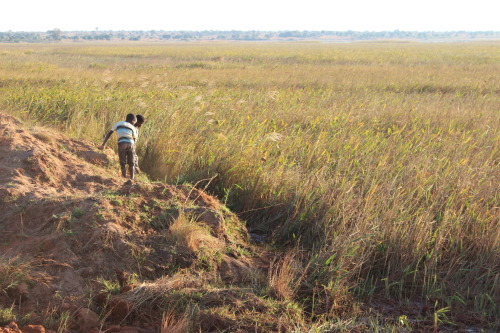Campus Ministry
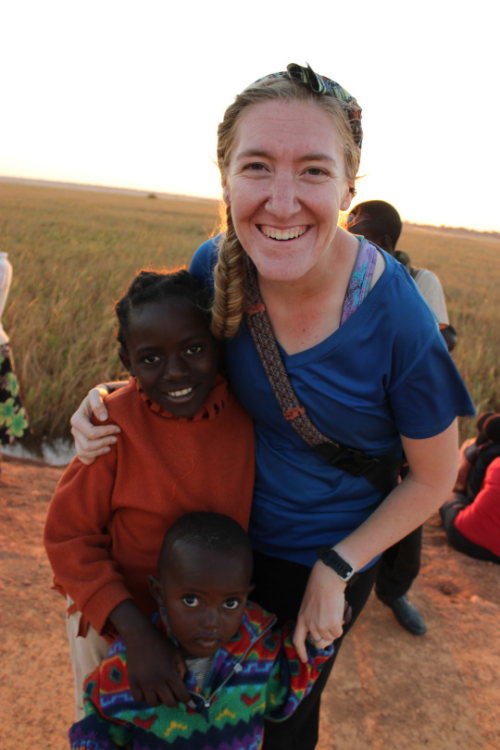
Lessons in Love: Pieces of Zambia
By Julie Benedetto
It has been almost exactly a month since I left Zambia and I have had a nagging feeling for the last few weeks about how to go about sharing anything of that experience with social media. There’s a tendency when people like me go to other countries with children of different races that we take pictures with those kids and post them and seem like just another “white girl in Africa.” The reality is that maybe I am, but I cannot deny that I love these kids and I am still delving into what they taught me every day since being back. This will be a piece of that.
When we were in the village of Lubwe in Zambia, we were in the Northern Province, about an 11 hour bus ride from the capital. I have gone to rural areas and isolated villages in other countries, but staying there for three and a half weeks was nothing like anything I had ever done before. And the language barrier with the kids impacted our stay there a lot.
Our relationships that we formed with the children in the village were ones with few words, and a lot of love exchanged as we got to know each other without deep conversation, but learning how to communicate across languages and across cultures.
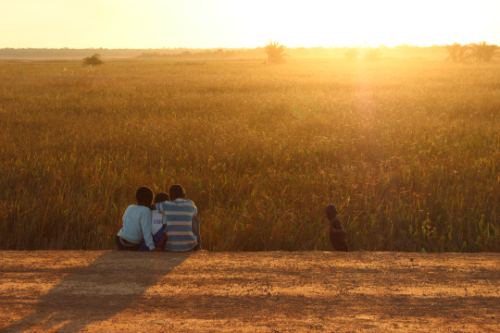
I’ve been thinking a lot about what those relationships mean, and what it means to love a child across the world who knows that I will probably never be coming back. It’s a hard thing to wrap my head around, even though I’ve said goodbye to people in other countries that I knew full well that I would probably never get to see again. But there’s something about loving a child who you can’t fully explain to them that you love them and leaving them the way that we did. It was a goodbye unlike any one I had experienced. We would go out and watch the sunset every night and our last day there was no exception. The children knew that we were leaving the next morning though, and so we all walked back from the sunset a little slower than usual. There was this unspoken difficulty between us, one that we couldn’t speak about even if we had the words in each others’ languages. Some of the kids cried the entire walk back from sunset. Taking up the back of the group, kids hanging from my arms, I approached our gate and was met by a sound of children and the students from our group all in tears. It was a genuine sadness that could not be reconciled, and in being back in the United States, I realize that that sadness is one of the most genuine forms of love I have ever witnessed. After what seemed like hours of goodbyes, hugging children and holding them tighter than they had hugged me the entire time so far, and not shedding any tears (which is rare for me, being a crier) I went in and washed my hands and found myself standing in the yard of the compound, staring up at the endless stars and the milky way splashed across the sky. I didn’t–and still don’t–have words for that moment. I found myself lost in the vastness of God, the frustration of a goodbye I couldn’t put words or feelings around, and the love I felt so deeply in that moment. One of the students came up to me and put her arm around my shoulder. Looking up at the stars for a few minutes next to each other, she said, “It’s really incredible, isn’t it?” I felt like I was in a movie as one single tear rolled down my face and the words caught in my throat, “It is. It really..really is.” Whether she was talking about the stars or the kids or our experience there, it didn’t matter. It was deeply incredible.
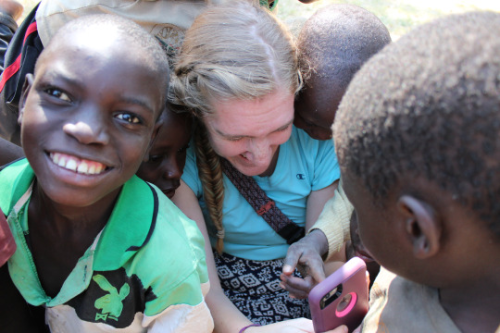
As I look back on those goodbyes and on things that happened while we were there, my brain and my heart keep bringing me back to the justice of what we did and the justice of the lives of the kids in the village. Something that has really been nagging at my heart is the love that these children have in their lives. There is a lot of injustice in Lubwe, and witnessing that while we were there was something that you could not process too much in that moment. In being fully present to the children there and what they needed from us in our three and half weeks there, I pushed a lot of it to the back of my brain. Being where my feet were meant that my social-justice-oriented heart had to take a back seat. And even that reality was difficult for me to process. I had the privilege of being able to not think about it too much while I was there. But the children living those lives do not have that privilege, and that’s why thinking about this now is important, and sharing this experience now is important.
One of the other people on our trip talked about how it’s important to not give people a false image of Africa, and an understanding of poverty that does justice to the complete story. I’ve been cautious to talk about the children there and their stories, because while they have written themselves into my story, their stories are not mine. And because of the language barrier, I don’t know the entire story. Even the teenagers, who spoke quite a bit of English, could not fully communicate things, especially when they were emotional or difficult things they wanted to share with us. I realize that so much of what I have seen and understand from there, I see with my lens. I see with my privilege. But most of all, I try to see it with my faith so that it makes the most sense.
One concept that I cannot stop thinking about is the justice of love: what it means to really love someone, and what it means that there are people in the world who have LOTS of people who love and care for them, and some people in the world who have very few. Living a life where I believe that God is calling me to live a life of radical love, this reality has, on some days, taken my breath away. When we think about privilege, we often think about money, or shelter, or access to education, being treated differently because of race, or sexuality, and the list goes on. One item on that list that I had not often thought about was the privilege of being able to love openly and be loved by so many people in my life. Throughout my life I had known that I had a lot of love, but this experience in Zambia reminded me how often I take that for granted, and how that has impacted the way I have grown and the even the career path I am going down.
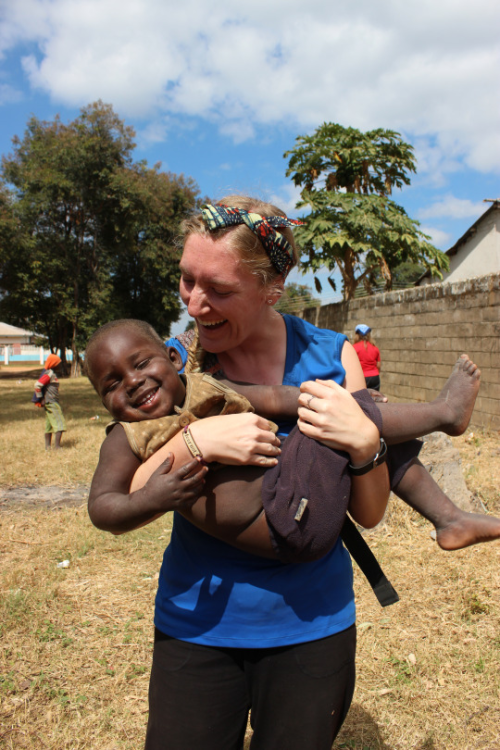
While we were there, a few of the kids got sick. One of the children got malaria and was throwing up and had an intense fever. One of the other children had an abscess on his face. We took them to the mission hospital across the street from where we were staying and got them the treatment they needed, but not everyone in the hospital treated them with the dignity that we felt they deserved, and they were often being scolded for not wearing shoes or blaming them for decisions that might have led to them getting these ailments. This was difficult for me to see, but I had to remind myself that culturally, things are different with how children respond to adults, and how children are expected to act. On this vein though, it was really difficult to take them to the hospital. We found ourselves, as a group, talking about how if we were not there, what would the kids be doing? Would they be getting treatment for diseases like malaria that are rampant in their towns? Who would give them bandaids for the cuts they get from broken glass on the street that they step on? What about when they weren’t getting fed because their parents were out working or drinking or doing whatever it is that their parents were doing? I found myself asking these questions about whether or not there was more justice in stepping in and providing what I could for the time we were there or if I should simply love. When it was not life-threatening, I usually chose the latter. Loving these kids was what I could do best and without hesitation.
But why is it that I have so much more love in my life? I thought about the children who got sick and how we dropped everything to get them to the hospital, to get them food so that they weren’t taking their meds without at least a little food. I thought of all the times I have called my mom when I’m sick, and she’ll stop whatever she’s doing and try to take care of me even if she’s far away. I think of the time I got stung by a bee and ended up in the hospital and my dad left work to come and be with me at the ER even though I said I was fine. I think of all of the countless friends and of Meag, who when I feel sick either mentally or physically, ask what they can do for me, whether they are near or far from me. As we made 3 or 4 different trips to the hospital with one of the kids to get the abscess on his face treated properly, I found myself beyond frustrated. I had known him for a little over three weeks, and I loved him more than I could explain. How could the people he lives with, his parents, his teachers, his neighbors, not love him enough to care that he clearly had an issue? I found myself not able to answer that question because the reality was that I did not–nor would I ever–know the reality of love in their culture. I didn’t know if his parents were alive or not because we didn’t go and interact with them. I didn’t know if his parents weren’t around to take him to the hospital because they were off making money to feed the family or because they were off drinking their money away in bars. I didn’t know what the reality of the hospital was for those workers and what they dealt with on a daily basis to be able to know why they responded to the sick children that way. I didn’t know how these kids related to the adults in this town enough to be able to judge it. I brought my lens and I knew it was western, and it was privileged, and all I could do was try to understand as best I could, and to love as best I could. And I look back, and I can’t help but feel like it was not enough. The reality is that maybe it wasn’t, but it had to be because it was all I had to give. And it was a lot more about the lessons about my own culture and own biases that they were giving to me than what I had to bring to them.
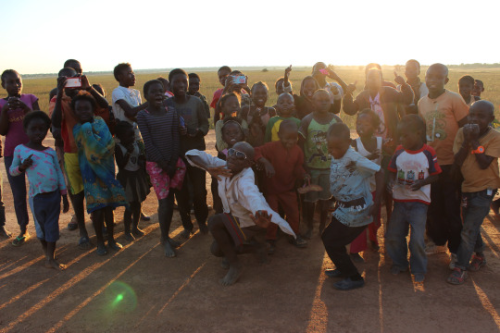
I’ve been feeling like there’s a lot of injustice in love and its distribution throughout our world. It’s hard for me to think about how deeply I loved those children while I was there, and how deeply they loved me back; but what is harder is knowing that they seem to really crave that love and attention while our group is there every year. Reminding myself, however, that I don’t know the whole picture. That perhaps the way the parents love their children is simply different, and the culture is simply different. Maybe loving their kids comes in the form of working so that they can put food on the table, or perhaps they too are dealing with hardships that alter the way that they can love. I have had the privilege throughout my life of never having the hardships in my life stand in the way–in significant ways–of how I have been able to love those around me. I have never considered that a privilege until going and loving these kids.
Amidst all of this, I have been struggling a lot with the injustice surrounding this. It seems wrong to me that children, that those in poverty, might not be surrounded with deep and genuine love, even if just the few direct people around them. In Lubwe, children are taking care of children. If you are big enough to carry a child, you often have a younger sibling strapped to your back. If you are given food and have younger siblings, you are almost always sharing it with them to make sure everybody gets at least a little. Their culture is one that is beautiful and frankly, very very challenging and difficult for me to comprehend. Like I said, however, I have been trying to place it within my lens of faith. I felt that God had called me to Zambia, and called me to love those children the best way I could. In being back, I miss them. I miss their contagious smiles and laughter, I miss their hands in mine, and I think about them often. I was struck by how difficult it was for our group to say goodbye, but for the last ten years, children in Lubwe have been loving the Dayton group something fierce, and they muddle through that goodbye every single year, knowing that they will likely only see oneperson from that group again the following year. They have so little, they’ve lost so much, and they still can love better and more eagerly than most people I’ve ever met.
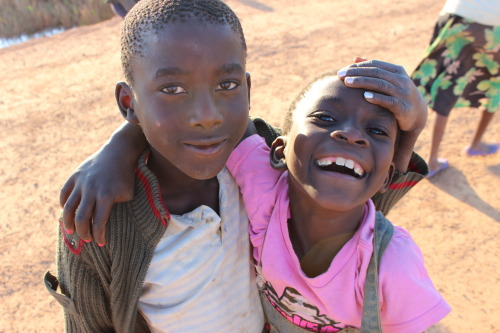
This lesson is one that does not fit nicely into a box when coming back to my life here. I don’t feel comfortable with the amount of people in the world–these children, and tons and tons of other people I have met and haven’t met–that do not have the earthly love that they deserve in their lives. But perhaps God is calling me to this discomfort. To this reality that there is not enough earthly love, and so I must remain uncomfortable and searching. That I must be a source of earthly love to all those I meet, in all corners of the world. And that I have to try not to harden my heart to the injustice that surrounds this. I hope to continue to unravel this mess into something that makes more sense for my vocation, for my purpose, for moving forward.
So, I’m trying to be patient with myself, as I unwrap these lessons and try to process what that experience in Zambia meant to me. I don’t have adjectives or sentences that quickly describe what it was like to love and be loved by such innocent and beautiful and genuine souls. I don’t have words for the journey I had the privilege of walking on with the students and other campus minister that were with me. But most of all I don’t have a quick way of explaining how much hurt I feel for those who don’t have enough love in their lives and how much I wish I could reconcile that in our world; yet I’m quickly realizing that perhaps that is a life-long call from God. Across the world, what defines us is not what divides us, but the ministry to which we are called to share: the love and forgiveness exemplified in Jesus Christ.
Thank you, Zambia. Thank you for pushing me, for reminding me what discomfort can do for not only me but for the world, and for challenging me to continue choosing that.
